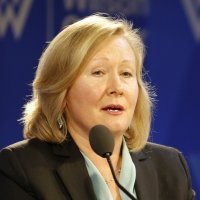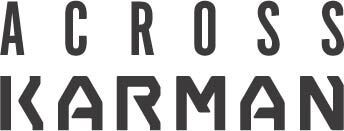The Soviet Cuban Missile Crisis: Castro, Mikoyan, Kennedy, Khrushchev, and the Missiles of November
Svetlana Savranskaya, senior fellow at the National Security Archive discusses her latest book, The Soviet Cuban Missile Crisis: Castro, Mikoyan, Kennedy, Khrushchev, and the Missiles of November.
Based on secret transcripts of top-level diplomacy undertaken by the number-two Soviet leader, Anastas Mikoyan, to settle the Cuban Missile Crisis in 1962, The Soviet Cuban Missile Crisis sheds new light on the crisis and Cold War history. The "missiles of October" and "13 days" were only half the story: the nuclear crisis actually stretched well into November 1962 as the Soviets secretly planned to leave behind in Cuba over 100 tactical nuclear weapons, then reversed themselves because of obstreperous behavior by Fidel Castro. The highly-charged negotiations with the Cuban leadership, who bitterly felt sold out by Soviet concessions to the United States, were led by Mikoyan.
Adding personal crisis, Mikoyan's wife of more than 40 years died the day he arrived in Havana, yet he stayed to resolve the crisis through direct talks in Havana, New York, and Washington, amid constant communications with Moscow.
The author, Sergo Mikoyan, who served as his father's personal secretary during these travels, vividly recalls how the Soviet relationship with revolutionary Cuba began and how it was shaped by the crisis.
Joining Savranskaya on the panel is Philip Brenner, professor of international relations and affiliate professor of history at American University.
James G. Hershberg, associate professor of history and international affairs at The George Washington University will chair the event.
The Soviet Cuban Missile Crisis: Castro, Mikoyan, Kennedy, Khrushchev, and the Missiles of November was co-published by the Wilson Center Press as part of the CWIHP book series.
To purchase the book visit the Stanford University Press website.
Visit www.CWIHP.org for more information on the CWIHP Book Series.
Speakers

Director of Russia Programs, National Security Archive
Hosted By

Cold War International History Project
The Cold War International History Project supports the full and prompt release of historical materials by governments on all sides of the Cold War. Read more


History and Public Policy Program
A leader in making key foreign policy records accessible and fostering informed scholarship, analysis, and discussion on international affairs, past and present. Read more


Kennan Institute
After more than 50 years as a vital part of the Wilson Center legacy, the Kennan Institute has become an independent think tank. You can find the current website for the Kennan Institute at kennaninstitute.org. Please look for future announcements about partnership activities between the Wilson Center and the Kennan Institute at Wilson Center Press Room. The Wilson Center is proud of its historic connection to the Kennan Institute and looks forward to supporting its activities as an independent center of knowledge. The Kennan Institute is committed to improving American understanding of Russia, Ukraine, Central Asia, the South Caucasus, and the surrounding region through research and exchange. Read more


